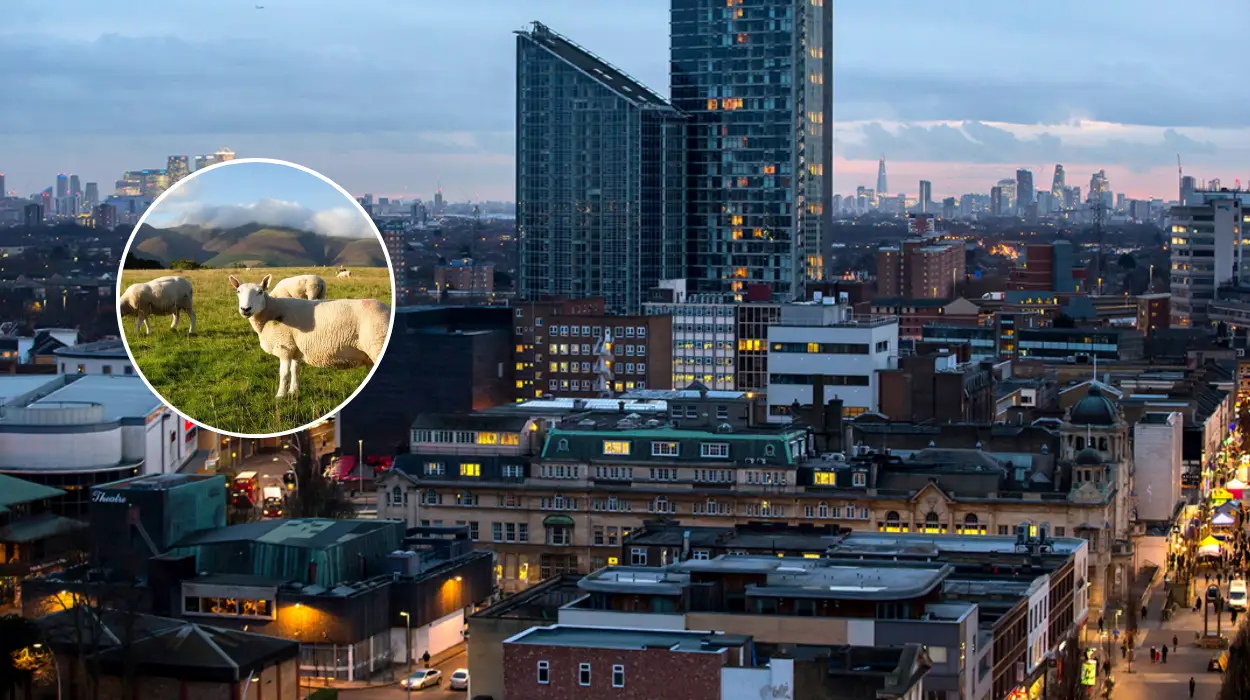Key Points
- Arfan Sultan, an Ilford resident, was found in possession of 1.6 tonnes of ‘smokies’, illegally prepared meat products.
- He was convicted of multiple food safety violations following an investigation by Redbridge Council and the Food Standards Agency’s National Food Crime Unit (NFCU).
- Sultan pleaded guilty to eight offences under Regulation 19 of the Food Safety and Hygiene (England) Regulations 2013.
- He received a 16-month prison sentence, suspended for 18 months, along with 240 hours of unpaid work and a £3,000 fine.
- Smokies are made by singeing fleece with blow torches, a process outlawed in the UK due to safety risks.
- Officials warn of the dangers posed by unregulated meat products and illegal slaughter practices.
- The case is seen as a significant victory against food crime and illegal meat processing in East London.
What are ‘smokies,’ and why are they illegal in the UK?
‘Smokies’ are a type of processed meat made by singeing the fleece of sheep with blow torches, which imparts a smoky flavour. As reported by (Neil Castle) of the NFCU, this method is illegal because it involves the illegal slaughter of animals and poses serious food safety and animal welfare concerns.
The practice has been outlawed under UK law following concerns over hygiene and the possibility of disease transmission. The process often occurs in unregulated settings, increasing the risk of contamination, which can compromise public health.
The singeing process, although traditional in some cultures, is banned because it bypasses the rigorous inspections required in the legal meat processing industry. Additionally, the practice sometimes involves animals slaughtered outside the official regulated supply chain, further exacerbating food safety risks.
How was the illegal sheep carcass operation uncovered in East London?
According to reports from (The Guardian) and local authorities, the investigation into Sultan’s activities began after tip-offs from community members concerned about unregulated meat sales in Ilford.
Redbridge Council, working alongside the NFCU, launched a covert operation focusing on illegal slaughterhouse activities and unlicensed meat sellers operating within the borough. A key breakthrough was made when authorities recovered a vehicle belonging to Sultan, which contained an astonishing 1.6 tonnes of smokies, indicating large-scale illegal production.
As reported by (Michael Brown) of The Independent, during the raid, officers confiscated numerous processed carcasses and identified evidence of illegal slaughter practices carried out without adherence to hygiene standards.
This operation was part of a broader crackdown on illegal meat and food safety violations across East London, prompted by increasing concerns over food fraud and health hazards.
What legal actions have been taken against Arfan Sultan?
As reported by (Matthew Carter) of (BBC News), Sultan pleaded guilty to eight offences under Regulation 19 of the Food Safety and Hygiene (England) Regulations 2013, which relates to food safety law breaches.
On 14 November, Snaresbrook Crown Court sentenced him to a 16-month prison term, suspended for 18 months. The court also ordered Sultan to complete 240 hours of unpaid community service and pay a fine of £3,000.
The court’s judgment reflects the seriousness attributed to his actions, particularly given the large quantity of illicit meat involved. The court considered the potential health risks and the illegal slaughter methods used, which violate both food safety laws and animal welfare legislation.
The court’s decision aims to deter others from engaging in similar illegal practices.
What are the hazards associated with illegal meat processing and ‘smokies’?
Experts warn that illegal meat processing—especially involving singeing fleece with blow torches—poses multiple health and safety hazards.
According to (Neil Castle), deputy head of the NFCU, such products often bypass inspections that ensure safety and hygiene, increasing the risk of bacterial contamination, disease transmission, and food poisoning. Furthermore, the process can cause animal welfare issues, as slaughter procedures often occur without proper oversight.
Animal welfare concerns stem from slaughter practices that may not meet legal standards, leading to unnecessary suffering or illegal slaughter outside regulated facilities.
Unregulated meat can also contain residues of chemicals or toxins, which do not undergo the strict testing and approval processes mandated for commercially processed meat.
Why is the illegal slaughter and sale of meat such a concern for public health officials?
Food safety authorities emphasize that illegal meat can be highly dangerous because it often lacks proper hygiene controls and traceability.
As stated by (Neil Castle), the NFCU works closely with police and local authorities to intercept and dismantle illegal food enterprises. The sale of unregulated meat undermines the industry’s integrity and consumers’ trust in the safety of their food supply.
In the case of Sultan, the large quantity of smoked sheep carcasses represented a significant risk of foodborne illness if consumed without proper safety checks. Authorities have highlighted that consumers may unknowingly purchase and eat these products, unaware of the health hazards involved.
Moreover, sale of such products deprives local authorities of licensing fees and regulations designed to ensure safe, legal meat processing.
How are authorities responding to the wider problem of illegal slaughter and meat sales in the UK?
As part of ongoing efforts, authorities like the NFCU, local councils, and police have increased surveillance and targeted operations against illegal meat processing networks.
Following Sultan’s case, officials have issued public warnings urging consumers to be vigilant about the origins of meat products. They recommend contacting local trading standards or environmental health teams if illegal or suspicious meat sales are suspected.
The NFCU’s deputy head, Neil Castle, stressed the importance of public cooperation: “If you suspect that smokie meat is being sold, contact your local trading standards or environmental health team.”
In recent months, the government has announced plans to strengthen regulations and conduct more frequent inspections at meat processing sites, especially in regions with known illegal activity.
What has been the response from local authorities and community leaders in East London?
Councillor Kam Rai, Leader of Redbridge Council, expressed satisfaction with the outcome of the investigation.
He stated:
“I’m pleased our Food Safety team, alongside the NFCU, were able to intervene in this case and protect the health of our residents. The production and processing of meat in this manner is illegal because we cannot guarantee it is safe for consumption.”
Rai emphasised that such illegal activities threaten public health and undermine legitimate businesses operating under proper regulation.
Local community organisations have also called for increased awareness and education campaigns to prevent such practices from taking root again.
What does this case reveal about the broader issue of food crime in the UK?
The Sultan case highlights ongoing concerns about the scale and sophistication of food crime across the country.
As reported by (The Guardian), food fraud and illegal slaughter remain persistent problems, often linked to organised crime networks seeking to profit from unregulated markets.
The case underscores the importance of vigilant enforcement agencies and public awareness to prevent contaminated or unsafe meat from reaching consumers.
It demonstrates the commitment of authorities to dismantle illegal operations and uphold food safety standards, despite the economic and logistical challenges involved.
This high-profile case of Arfan Sultan’s illegal sheep carcass operation exposes the dangers linked to unregulated meat processing, especially practices such as singeing fleece with blow torches—commonly known as ‘smokies’. With the suspension of his jail sentence and imposition of community service and fines, authorities signal their resolve to crack down on such food crimes.
Public health officials continue to warn consumers about the dangers of unregulated meat while reinforcing the importance of purchasing from licensed sources. As law enforcement agencies intensify their campaigns against illegal slaughter and meat sales, residents of East London can expect ongoing efforts to protect their health and the integrity of the food supply chain.


